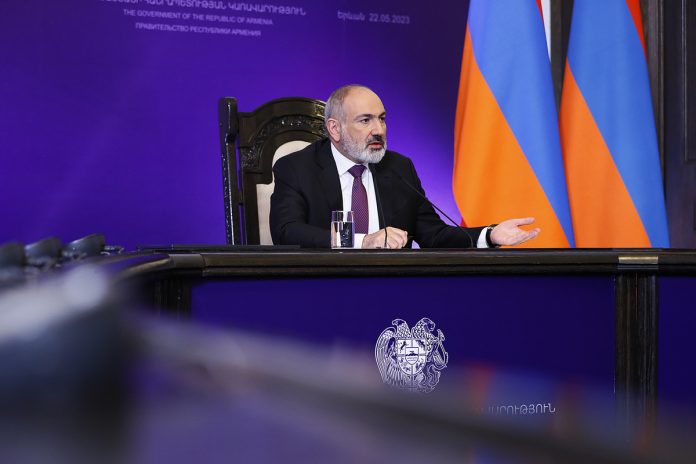Meetings and Condemnations
On April 5th Armenia, the EU, and the US are to hold a tripartite meeting in Brussels, Belgium. Armenian Prime Minister Nikol Pashinyan is travelling to Belgium, along with the US Secretary of State Antony Blinken in order to meet with President of the European Commission, Ursula von der Leyen.
While Armenia, the US, and the EU have insisted that the meeting is solely focused on Armenia, their economy, reforms and democracy, and humanitarian needs (in particular related to the refugees created by the Armenian civilian exodus from Artsakh/Nagorno-Karabakh in September of 2023).
However, Azerbaijan, Turkey, and Russia have each condemned the meeting.
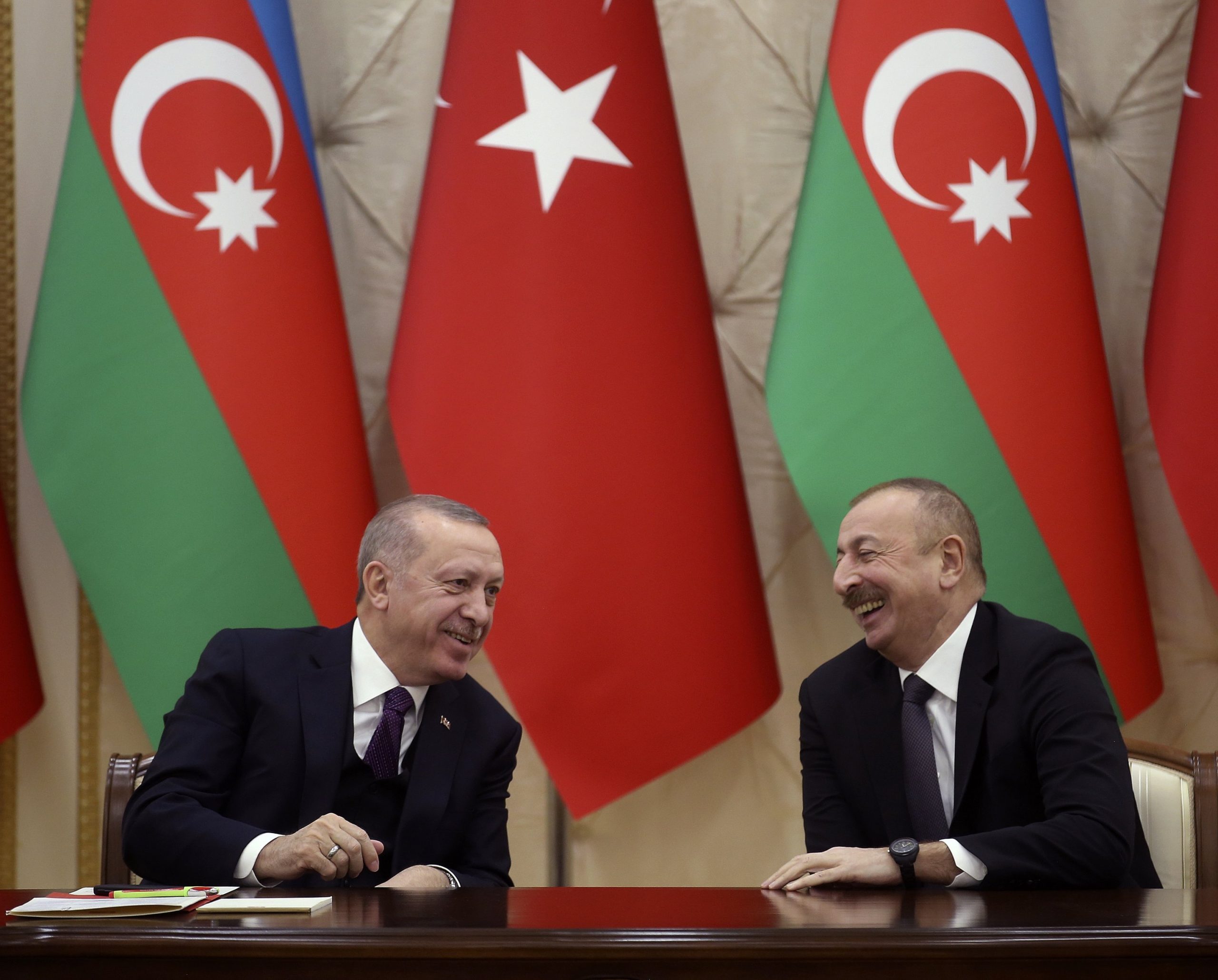
Azerbaijan has referred to the meeting as an escalation, and has particularly condemned the fact that they were not invited. The Azeri Ministry of Foreign Affairs spokesperson, Aykhan Hajizada, made a number of statements also condemning the EU civilian monitoring mission, France’s growing arms sales and general defence relationship with Armenia, as well as Greece’s growing defence relationship with Armenia.
“Such actions by the EU and US clearly have a one-sided and biased character, and are based on double standard approach. The mentioned conference is not conducted in a fully transparent manner, lacks regional inclusivity, and runs contrary to promoted and much needed confidence-building, and integrity in the region. It creates new dividing lines and so-called spheres of influence in the region, instead of encouraging the Armenian side to negotiate in good faith” -Azeri Foreign Minister Aykhan Hajizada
Turkey has similarly condemned the meeting, claiming it will “undermine the neutral approach that should be the basis for the solution of the complex problems of the region.” Turkey and Azerbaijan maintain very close relations, and their foreign policy on such matters oftentimes aligns.
“A historic opportunity for lasting peace and stability in the region has emerged as a result of Azerbaijan’s liberation of its occupied territories after the Second Karabakh War, and the restoration of its sovereignty over all its territories through the anti-terrorist operation in Karabakh on 19-20 September 2023. At a time when the success of this historic opportunity is so close, it is even more important that third parties, especially actors from outside the region, adopt a fair and impartial approach to the process and carefully avoid any harm to it. In this context, it is our responsibility to underline clearly that the trilateral meeting between Armenia, the EU and the USA on 5 April will undermine the neutral approach that should be the basis for the solution of the complex problems of the region. This initiative, which excludes Azerbaijan, will pave the way for the South Caucasus to become an area of geopolitical confrontation, rather than serving peace. We reiterate our call to third countries to take into account the parameters of the region and to approach the parties to the conflict from a position of equal distance” -An excerpt from the statement of the Turkish Ministry of Foreign Affairs
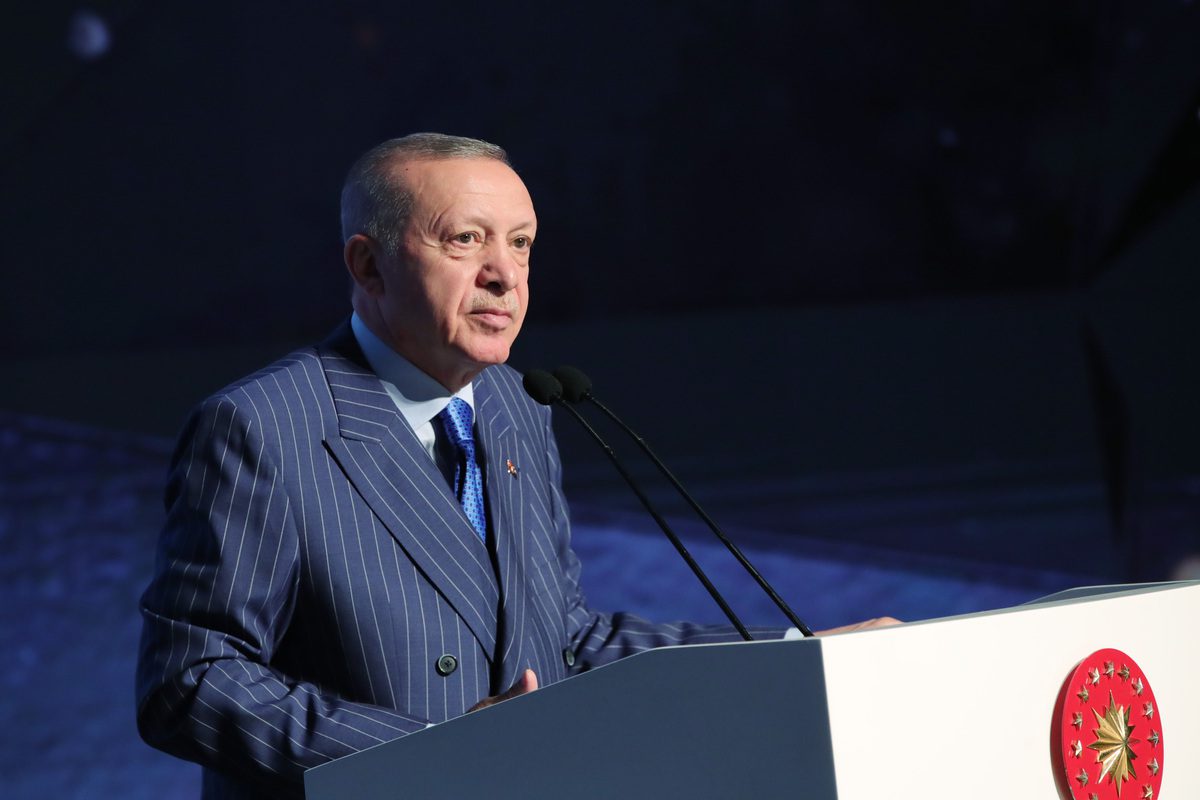
Russia, a historical ally of Armenia, also offered its own perspectives on the meeting. Russia’s Foreign Minister, Sergey Lavrov, claimed that “the Armenian leadership, with fabricated pretexts, distorting the history of the last three years, deliberately pursues the course to collapse relations with the Russian Federation.”
Maria Zakharova, the Director of the Information and Press Department for Russia’s Ministry of Foreign Affairs, claimed that the meeting was an attempt by the west to “create new rifts in the region” and force “the countries in the region to follow anti-Russian line.”
In contrast to the Russian, Azeri, and Turkish condemnations however, are the words of the US, EU, and Armenia. The three have insisted several times that the meeting has nothing to do with Azerbaijan, peace processes concerning the conflict between Armenia and Azerbaijan, or Russia. They have insisted that the meeting is solely related to Armenia, in particular economics and trade partnerships, and will not be “directed against any third party.”
“I fail to see why that would be escalatory or of a concern to any country in the world” -Matthew Miller, US State Department Spokesman
On April 3rd Secretary Blinken held a phone conversation with Azeri President Ilham Aliyev, largely aimed at discussing peace processes between Armenia and Azerbaijan. The Secretary spoke of the importance in committing to these processes, but also emphasized that “there is no justification for increased tension on the border.”
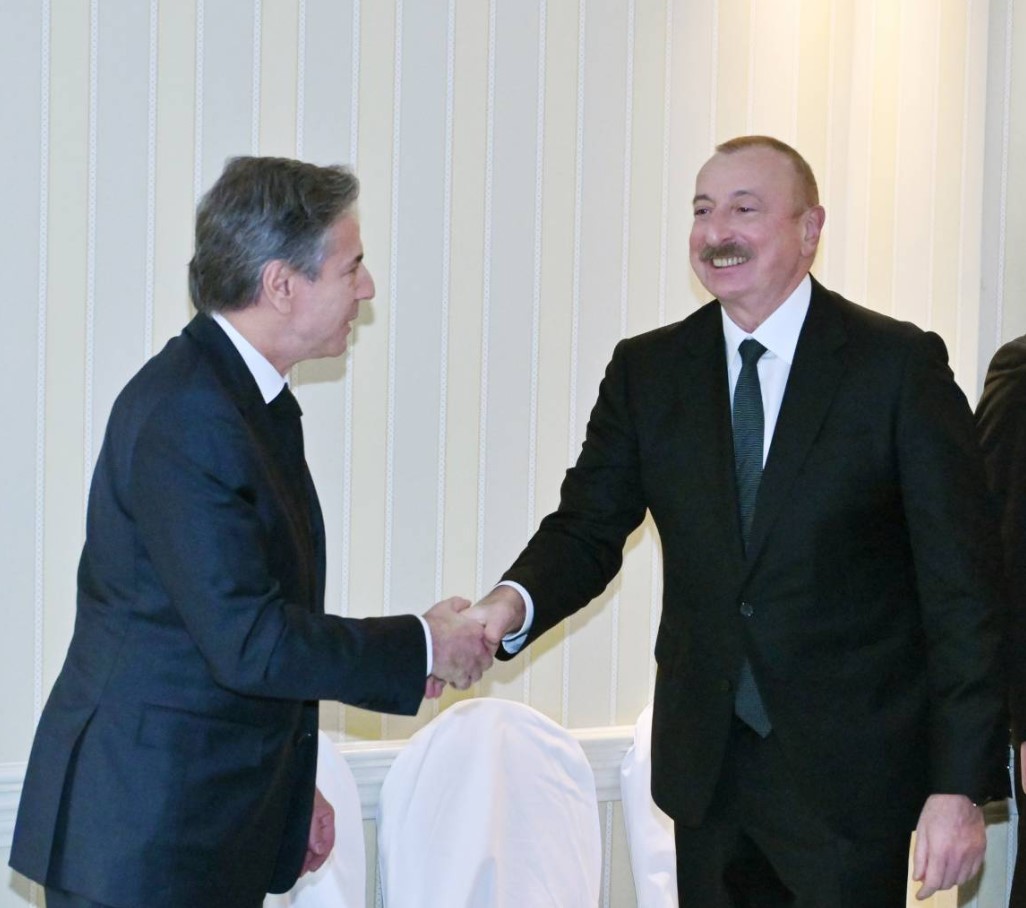
Border Escalations
Over the past week there have been some notable escalations on the Armenia-Azerbaijan border. In particular, Azerbaijan has accused Armenia of building up military forces on the border. They claim that Armenia has built up “units and combat vehicles,” constructed “offensive strongholds” and “fortifications,” as well as deployed “artillery systems, other assault weapons and heavy firepower.”
Azerbaijan made the claim on March 31st. On the same day, the EU monitoring mission, which operates on the Armenian side of the border only, deployed patrols in order to investigate the claims. The mission reported that “the situation has been calm & quiet & that no such movements have been observed.”
On 31 March, EUMA dispatched patrols on ??side of??-?? border to monitor & report on any out of the ordinary military movements in the border area. All patrols reported that the situation has been calm & quiet & that no such movements have been observed ??https://t.co/vkYe1SSPTH pic.twitter.com/FgNezQh242
— European Union Mission in Armenia (@EUmARMENIA) March 31, 2024
The following day Azerbaijan renewed the claims, releasing a video that they claimed demonstrated their claims. Their statement, and the video, may be viewed here.
On April 2nd both sides traded accusations of being fired upon by the other.
Azerbaijan claimed that Armenian troops fired upon Azeri positions in the Nakhchivan exclave late at night on April 1st. Armenia denied the accusations, and offered their own, claiming that Azeri forces opened fire on Armenian troops on both April 1st and April 2nd in Armenia’s Gegharkunik province and the Syunik province. Azerbaijan’s Ministry of Defence released no separate statement denying Armenia’s claims.
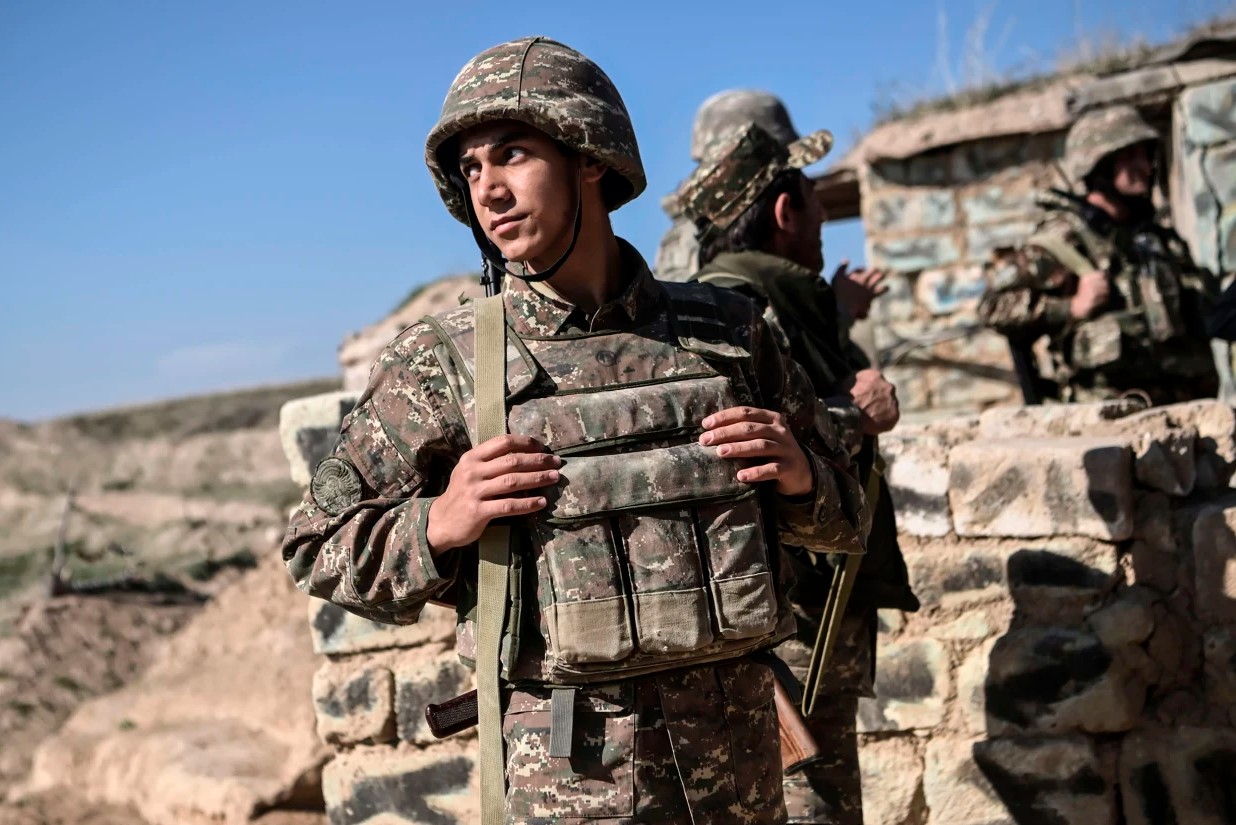
While neither side reported any casualties from the acclaimed incidents, any opening of fire is a notable escalation on the highly militarized border. Despite the constant presence of both nations military forces on the border, there have been very few reported breaches of a ceasefire or any clashes for several months. Clashes historically have been commonplace on the border, however they have been very minimal in recent times. One such clash occurred in February, in which four Armenian soldiers and one Azeri border guard were reportedly killed in small clashes across two days. The February clashes were a significant point of tension between Azerbaijan and Armenia.
Russia’s Falling Relations with Armenia
Over the past several years, Armenian and Russian relations have been faltering. Over the past year, these faltering relations have become distinctly worse.
Relations have primarily declined due to what Armenia claims is Russia’s failure to properly assist it in its conflicts against Azerbaijan, including militarily in the face of Azeri attacks on Armenian territory in 2021 and 2022 that led to the occupation of as much as 250km2 of Armenian territory.
Russian Foreign Minister Sergey Lavrov further offered condemnations for Armenia’s recent departure from Russia in its foreign policy. He criticized the Armenian narrative that Russia has refused to assist Armenia, claiming that the CSTO (Collective Security Treaty Organization, a military alliance headed by Russia. The CSTO bears a protocol similar to NATO’s article 5, which provides a collective defence article for member states) did not refuse to defend Armenia.
From the 12th to the 14th of September, 2022, Azerbaijan launched an extensive assault upon border positions of the Armenian mainland. Despite the clashes only lasting a few days, several hundred soldiers were killed across both sides. As the clashes went on, Azerbaijan again seized significant amounts of Armenian territory, advancing several more kilometres.
During the clashes, PM Pashinyan attempted to request the CSTO’s assistance. Not only did the CSTO deny Armenia’s request, but they also failed to even issue a formal condemnation of Azerbaijan’s attacks.
Following the attacks, both the EU and the CSTO offered to deploy a monitoring mission along the border, in order to further survey for ceasefire violations and report upon them. Armenia rejected the CSTO’s offer to deploy their monitoring mission, however accepted that of the EU’s.
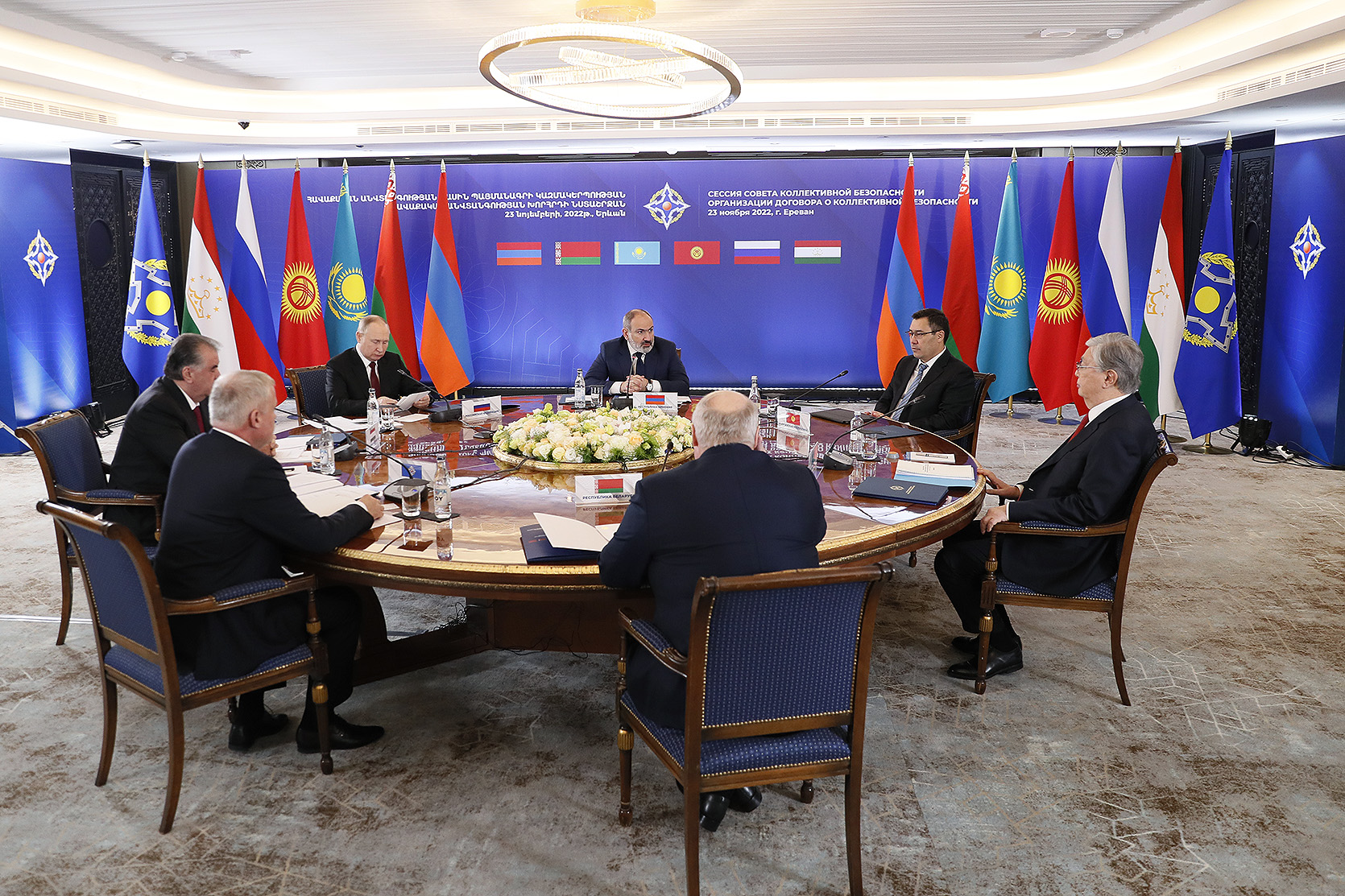
Since then, the EU has deployed within Armenia’s borders and regularly patrols border areas in order to report on any violations that may occur. At first the EU had requested to also deploy on the Azeri side of the border, however Azerbaijan refused them entry, resulting in the EU monitoring mission only operating on the Armenian side of the border.
FM Lavrov last week reiterated Russia’s condemnation of Armenia’s refusal of the CSTO’s mission, and further criticized the EU monitoring mission, claiming that it is becoming a “NATO mission” (notably, Azerbaijan made this same claim in their recent condemnations of the mission) with the recent addition of Canadian, Norwegian, and US personnel to the mission.
Russian authorities, including President Vladimir Putin, have been very critical of Armenia’s moves to grow closer to the West in recent times, a move that PM Pashinyan has said is needed to “diversify” Armenia’s foreign policy.
The EU has not failed to capitalize on Russia and Armenia’s relational problems, with the EU repeating claims that Russia has abandoned Armenia.
Armenian authorities have recently expressed interest in potentially applying to join the EU, an expression of interest that was met by the EU, who passed a resolution voting to consider Armenian membership in the union.
Notably, in order to apply to the EU, applicants must undergo a number of democratic reforms in order to liken their democratic institutions to that of the EU, and increase transparency. For the past number of months, Armenia has been undergoing a number of democratic reforms, supported by the EU and, more specifically, France. These democratic reforms were acknowledged by the EU in their resolution that called to consider Armenia’s potential membership, and called for further support of them.
Democratic reforms are on the agenda for the April 5th tripartite meeting. Whether or not it is publicly announced, there is certainly a possibility that Armenia’s potential EU application will be discussed at the meeting, particularly since it seems these reforms may have been carried out with an EU application in mind.
A Series of Hits
There are a number of aspects, and consequences, to Armenia’s departure from Russia in its foreign policy. This departure has seen Armenia grow closer to several western countries, France in particular.
For a long time, Russia has been Armenia’s primary arms provider. Following defeat against Azerbaijan in the 44-Day war in November of 2020, Armenia signed a series of defence contracts with Russia, valued at approximately 400 million USD, aiming to rebuild its militaristic capabilities, which had been significantly damaged over the course of the war.
The contracts were paid in full prior to any deliveries. However, said deliveries did not take place until several years later, with the very first of these arms deliveries from Russia only taking place in early January of 2024. Notably, the deliveries that took place were not the full range of weapons that Armenia ordered, and thus more weapons deliveries are still expected.
The primary reason for the delays in Russia’s arms deliveries, while theorized about for awhile, was finally acknowledged by Russia to be supply issues incurred by the Russian invasion of Ukraine.
France has stepped forward as Armenia’s primary defence partner in the face of issues with Russia. While agreements and contracts between Armenia and France have fallen short of military guarantees that Armenia, in theory, held with the CSTO, they have shown that the West is portraying genuine interest in the region, and interest in Armenian security.
Following the Azeri seizure of Artsakh in September of 2023, which was carried out without intervention from Russian peacekeepers stationed in the region, France deployed a military attache to Armenia, and announced it would be opening a consulate in Armenia’s Syunik province. During these announcements, France’s at the time Foreign Minister, Catherine Colonna, accused Russia of having “abandoned” Armenia.
On February 22nd, Armenia reportedly received a batch of French weapons it had ordered from contracts in October of 2023. The delivery of weapons coincided with a visit from the French Minister of Defence Sebastien Lecornu, accompanied by representatives from many of France’s largest arms manufacturers, who met with the Armenian minister of defence, Suren Papikyan. Representatives from Thales, MBDA, Arquus, Nexter, Lecorni, PGM, and Safran accompanied Lecornu.
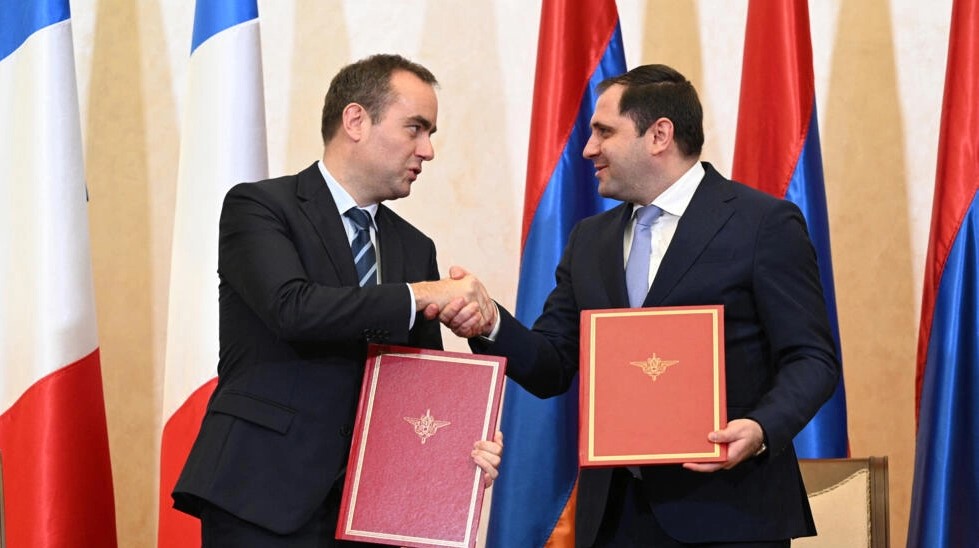
While not publicly stated, the delivery is reported to have been of three GM200 radar systems from France’s Thales Group, as well as some night vision equipment from Safran.
The Defence Minister’s visit marked the very first time a French Defence Minister has visited Armenia. During Lecornu’s visit, Armenia and France signed further defence contracts. The two nations signed a “letter of intent” in order to facilitate the future delivery of French Mistral short range surface-to-air missile systems, as well as precision rifles from PGM.
In addition to weapons acquisitions, Armenia received a number of training commitments from France. Later in 2024, France is to hold three different mountainous combat training exercises with Armenia, train 5 Armenian soldiers at the esteemed Saint Cyr military academy in France, assist in training Armenian NCO’s, and also deploy a special military advisor to Armenia who specializes in ground-based air defence systems in order to assist against “possible strikes by potential aggressors” against civilian targets in Armenia.
Armenia has also agreed with Greece, a nation who they have previously held several military exercises with, to deepen military co-operation, largely through further exercises. This co-operation doesn’t include any arms sales to Armenia, however nonetheless shows Armenia’s continual branching out in defence relations.
Armenia’s growing relationship with both France and Greece, two NATO and EU countries, has been subject to repeated condemnation from Russia.
To a lesser extent, Armenia has also increased military co-operation with the US, having hosted a training exercise with US troops in September of 2023. Russia expressed a number of concerns about the exercise, and stated they were watching the exercise closely.
It is worth noting that Armenia has skipped, or cancelled, several CSTO exercises over the last several years.
The largest hit to Armenian and Russian relations has been the loss of Artsakh.
In September of 2023, Azerbaijan launched a lightning offensive against the Artsakh Defence Forces, the military of the self-proclaimed Republic of Artsakh. Artsakh is a region that is internationally recognized as Azeri territory, however was, until recently, inhabited by a majority Armenian population.
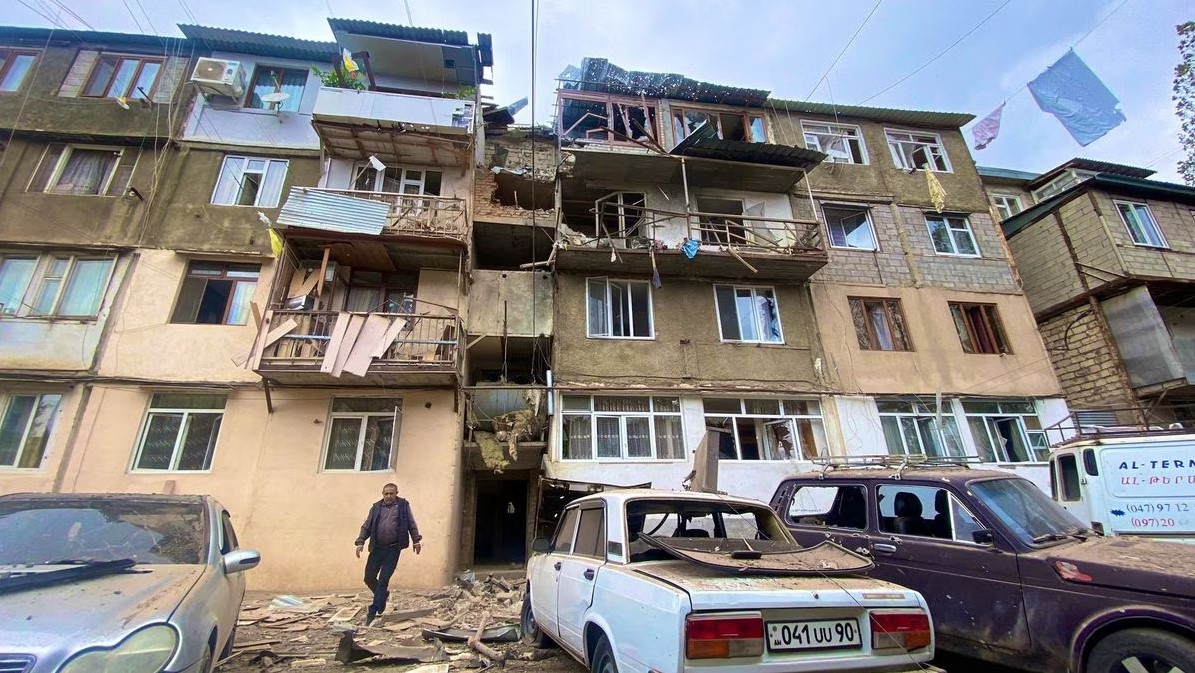
Following Azerbaijan’s offensive was the capitulation of the Republic, and the exodus of nearly the entirety of Artsakh’s 120,000 Armenian population.
The offensive took place under the watch, and without the intervention of, Russian peacekeepers who had been stationed in the region. Russian peacekeepers had been in Artsakh since the end of the 2020 44-Day war, which ended with a Russian brokered ceasefire.
The several month blockade of Artsakh that preceded Azerbaijan’s military offensive also took place under the watch of Russian peacekeepers, who were supposed to ensure unimpeded travel between Armenia and Artsakh as per the 2020 ceasefire agreement.
The blockade and eventual loss of Artsakh spawned yet another political crisis within Armenia, the leadership of which blamed Russia in part for the loss, particularly since it took place without intervention from Russian peacekeepers.
In turn, however, Russia blamed Armenia for the loss, including Putin himself blaming Armenia for giving up Artsakh by offering to recognize it as Azeri territory.
As a part of the souring relations between Russia and Armenia, PM Pashinyan announced in February that Armenia was “freezing” its co-operation with the alliance. This came after several weeks of words from Pashinyan that Armenia was contemplating its future in the alliance. The move was followed by similar words.
Armenia stated that this freeze was merely an official adoption of a policy that had been enacted by Armenia for the past while. Armenia has continually skipped CSTO exercises, withdrawn representatives, and refused the signature of CSTO documents. Part of Armenia’s gripes with Russia over their perceived inaction they also have with the CSTO, which is headed by Russia, for failing to assist Armenia in a meaningful manner.
In another relational hit, Armenia also recently ratified the Rome Statute, solidifying its membership in the International Criminal Court (ICC). Due to an arrest warrant issued by the ICC, the Rome Statute’s ratification means that Armenia will now have to arrest Putin if he ever steps foot in Armenia, due to the ICC’s warrants being legally binding.
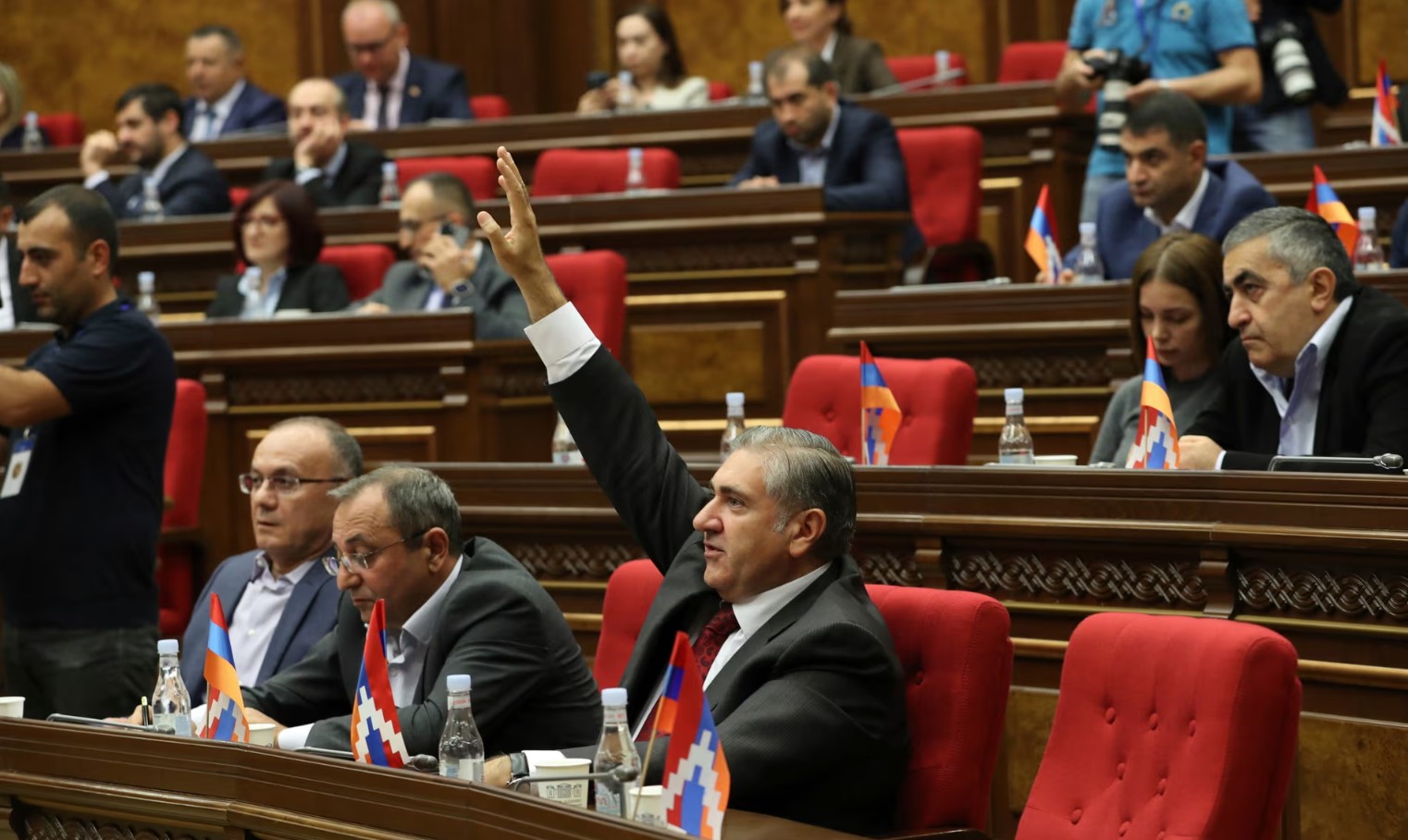
This same warrant was the reason Putin was unable to attend the BRICS meeting in South Africa in 2023, due to South Africa also being a member of the ICC.
Russia referred to the ratification as an “unfriendly” step by Armenia, however Armenia insisted that the adoption was unrelated to Russia, and was for them to potentially seek charges against Azerbaijan for crimes committed in the various conflicts between them.
What’s Next
As Armenia continues to gravitate towards the West, it is likely Russian-Armenian relations will continue to suffer extensively. It would seem that relations are quickly approaching a point of no return, with FM Lavrov having stated that Russia would “reconsider” their relations with Armenia if they continue their departure.
As for relations with Azerbaijan, Aliyev had recently stated that a peace deal with Armenia is “closer” than ever before. However this statement echoes statements made by both sides in 2022 and 2023, statements which said both sides were hopeful of a final peace deal by the end of the year. This peace deal has yet to come.
One of the largest issues in achieving this peace deal was the status of Artsakh. While this issue has largely been rendered null, there are still a number of significant issues which have put a large barrier in front of achieving a peace deal. Namely, border demarcation remains a large inhibitor.


